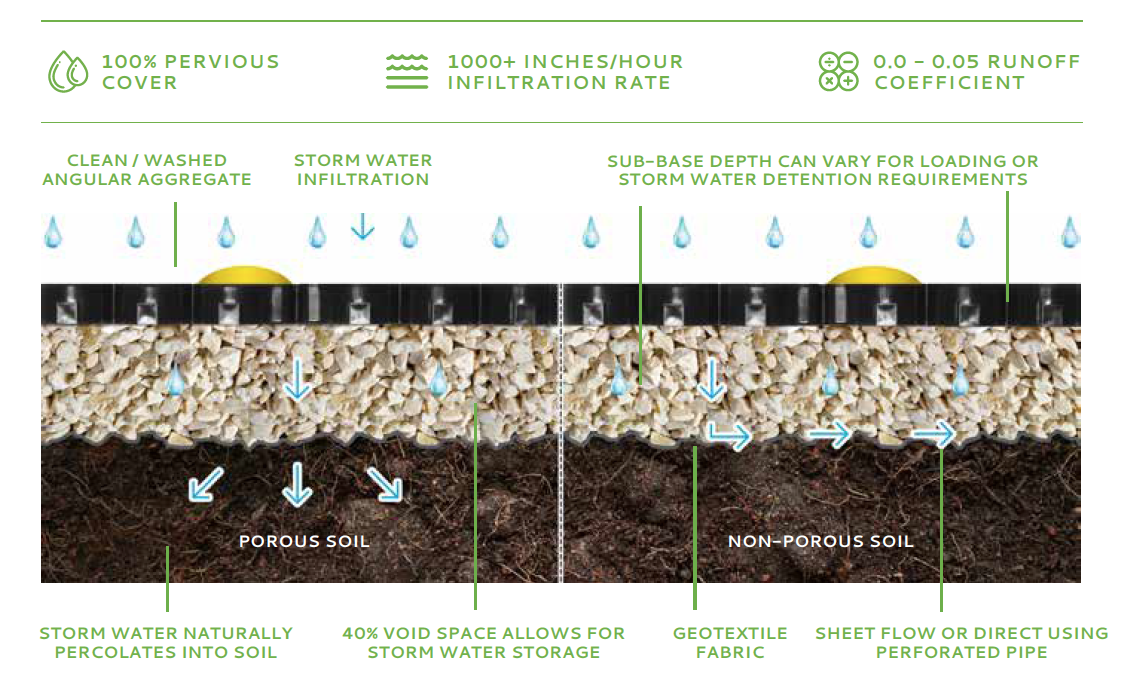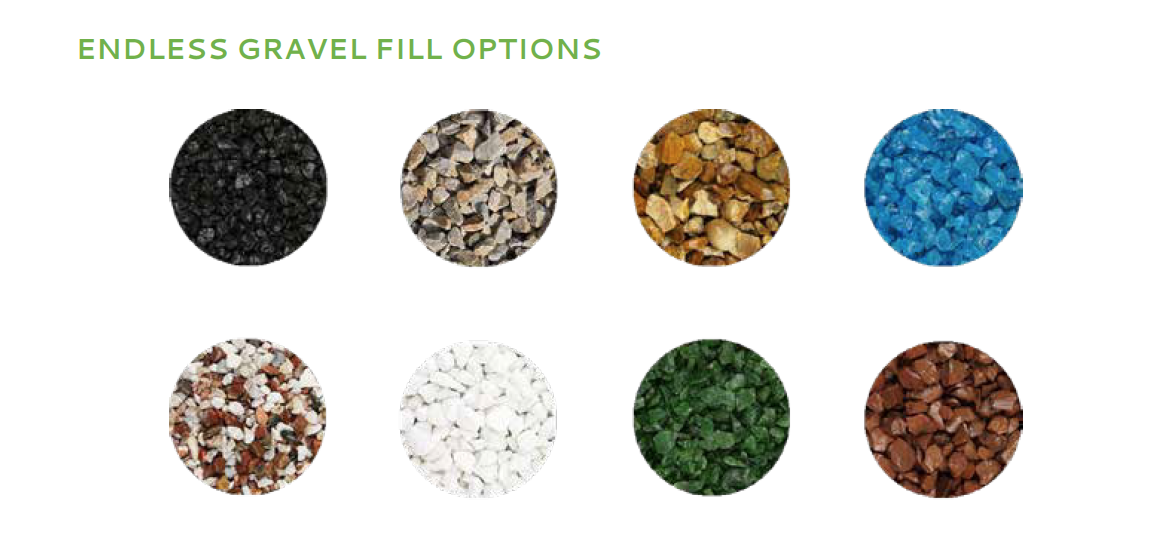Your Project Can Do Its Part For A Better Planet
What if paving could be 100% permeable? Absorb stormwater with zero runoff. Strong for heavy use & loads. No potholes, puddles, cracks. Modular, fast, easy-to-install. Naturally attractive with gravel or grass fill. Sustainable. A natural water filter. Paving that saves land & money vs. concrete. Eliminates detention ponds & flooding. Our permeable pavers are the better paving alternative to concrete and asphalt.
Permeable paving systems are porous, so they allow water to infiltrate the pavement and drain into the ground or sub-base rock underneath. These paving systems are just as strong and durable as traditional paving materials such as concrete, asphalt, or compacted gravel. Several types of porous paving grids exist, including plastic grid pavers with flexible joints; rigid or rolled plastic pavers; interlocking concrete grids; and permeable concrete and asphalt pavement.
How do permeable paving systems work?
The permeable pavers have open cells that are filled with gravel or grass and are designed to let water enter into their surfaces, get detained in the rock base, and absorb into the ground beneath. Paving systems that use hardscape surfaces (concrete, asphalt, or compacted gravel) will collect stormwater, causing it to pool or run off. Instead, permeable pavers have a porous surface that naturally mimics and recreates the way the ground reacts to rainwater. The rate at which the water drains into the surface depends on the specific type of permeable paving system used.
What benefits do permeable pavers provide over traditional paving methods?
Permeable pavements aid stormwater management, reduce runoff, and decrease flooding risks. Conventional concrete, asphalt, and gravel-only pavement are the primary generators of stormwater runoff. Runoff is dangerous for cities, as the water collects contaminants and gets hotter as it rolls through streets. Eventually, this runoff will flow into and disrupt the natural waterways. Runoff can also overwhelm stormwater management systems, which causes flooding and other problems in cities. To minimize flood risks, most cities and counties limit the amount of impervious surface for new construction and buildings.
Permeable pavers offer solutions to meet those impervious cover code restrictions that are intended to regulate stormwater, reduce flooding risks, and protect natural waterways. The results of permeable paving systems are environmentally friendly parking lots, roadways, industrial yards, fire lanes, driveways, and other paving applications that absorb and detain water and prevent flooding.
Customizable for any project
Built for Contractors
Structured for Engineers
Designed for Architects
Envisioned for Developers





